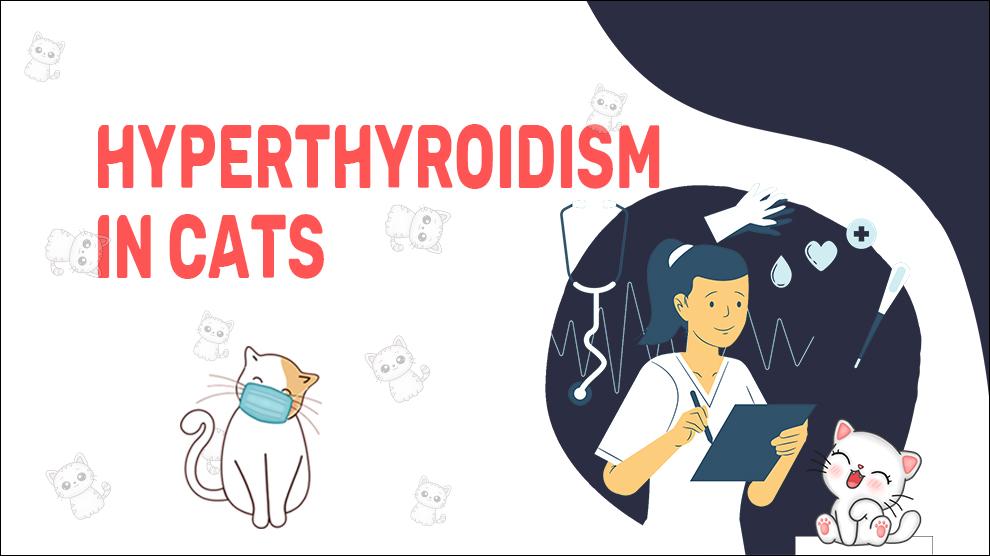What Is Hyperthyroidism In Cats?
Hyperthyroidism is a common hormonal disorder in cats that occurs when the thyroid gland produces an excess amount of thyroid hormone.
The thyroid gland, located in the neck, is responsible for regulating the body's metabolism. When it produces too much thyroid hormone, it can lead to a range of symptoms and complications in cats.
Clinical Signs Of Hyperthyroidism In Cats
The symptoms of hyperthyroidism in cats can vary but often include:
- Weight loss despite an increased appetite
- Increased thirst and urination
- Increased activity and restlessness
- Vomiting and diarrhea
- Poor coat quality and shedding
- Increased heart rate and heart murmurs
- Difficulty breathing
- Behavioral changes, such as aggression or restlessness
- Rapid Breathing
- Rapid Heartbeat
- Lack Of Appetite
- Depression
- Weakness
Treatment Options For Hyperthyroidism In Cats
There are several treatment options available for hyperthyroidism in cats, including:
- Medication: Anti-thyroid medications such as methimazole can be used to reduce the production of thyroid hormones. These medications must be given daily, and blood tests will need to be done regularly to monitor thyroid hormone levels.
- Surgery: Surgical removal of the thyroid gland can be done in some cases. This is a more invasive option and requires general anesthesia.
- Radioactive iodine therapy: This treatment involves injecting a radioactive iodine compound into the cat's bloodstream. The radioactive iodine is taken up by the thyroid gland and destroys the cells that produce thyroid hormone. This treatment is effective and usually requires only one injection. However, it does require hospitalization for several days to ensure that the cat is not radioactive.
Home Remedies For Hyperthyroidism In Cats
There are no home remedies for hyperthyroidism. However, you can help support your cat's health by providing a balanced diet, regular exercise, and a stress-free environment.
How To Prevent Hyperthyroidism In Cats?
There is no known way to prevent hyperthyroidism in cats. However, feeding your cat a balanced diet and avoiding exposure to environmental toxins may help reduce the risk of developing the condition.
Affected Cat Breeds Of Hyperthyroidism
Hyperthyroidism is most common in older cats, and there is no specific breed that is more predisposed to the condition.
Causes For Hyperthyroidism In Cats
Causes:
The exact cause of hyperthyroidism in cats is not known. However, it is believed to be linked to several factors, including genetics, diet, and environmental factors.
Some studies have suggested that exposure to certain chemicals, such as flame retardants, may also play a role.
When To See A Vet For Hyperthyroidism In Cats?
If you notice any of the symptoms of hyperthyroidism in your cat, it is important to make an appointment with your veterinarian.
Early diagnosis and treatment can help prevent serious complications associated with the condition.
Food Suggestions For Hyperthyroidism In Cats
There is no specific diet recommended for cats with hyperthyroidism. However, your veterinarian may recommend a special diet that is low in iodine, as iodine is necessary for the production of thyroid hormone.
Conclusion
Hyperthyroidism is a common hormonal disorder in cats that can have serious consequences if left untreated.
If you notice any of the symptoms of hyperthyroidism in your cat, it is important to make an appointment with your veterinarian as soon as possible.
Treatment options include medication, surgery, or radioactive iodine therapy, and your veterinarian can help you determine the best course of action for your cat.











